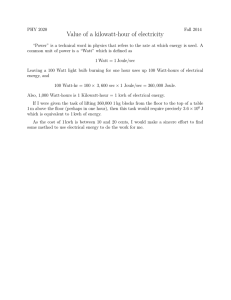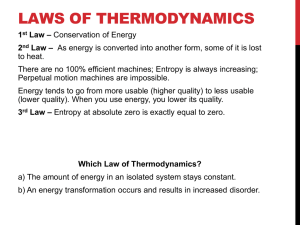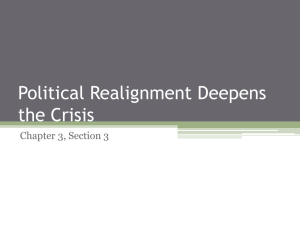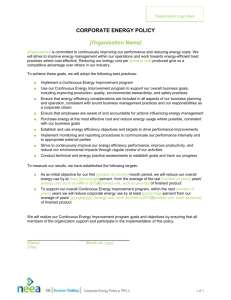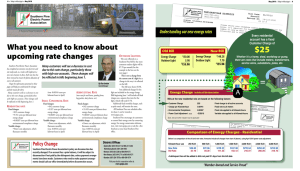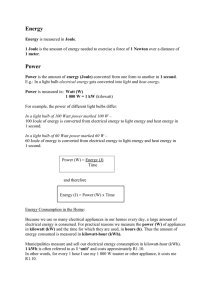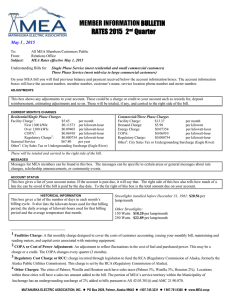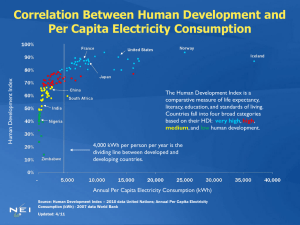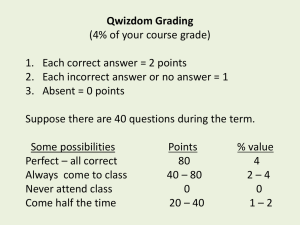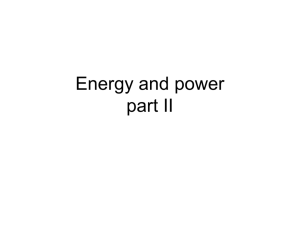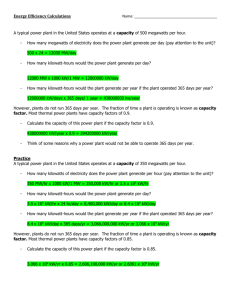Energy Math Probs II - Mrs. Willis' Science Courses at DMHS
advertisement
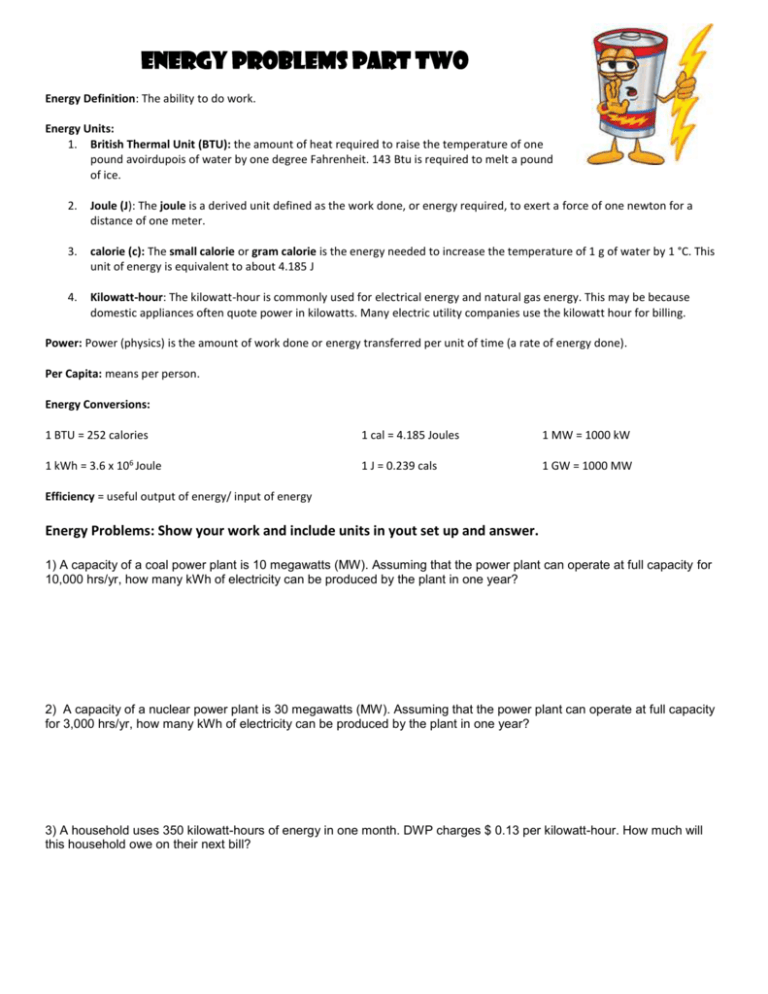
Energy Problems Part Two Energy Definition: The ability to do work. Energy Units: 1. British Thermal Unit (BTU): the amount of heat required to raise the temperature of one pound avoirdupois of water by one degree Fahrenheit. 143 Btu is required to melt a pound of ice. 2. Joule (J): The joule is a derived unit defined as the work done, or energy required, to exert a force of one newton for a distance of one meter. 3. calorie (c): The small calorie or gram calorie is the energy needed to increase the temperature of 1 g of water by 1 °C. This unit of energy is equivalent to about 4.185 J 4. Kilowatt-hour: The kilowatt-hour is commonly used for electrical energy and natural gas energy. This may be because domestic appliances often quote power in kilowatts. Many electric utility companies use the kilowatt hour for billing. Power: Power (physics) is the amount of work done or energy transferred per unit of time (a rate of energy done). Per Capita: means per person. Energy Conversions: 1 BTU = 252 calories 1 cal = 4.185 Joules 1 MW = 1000 kW 1 kWh = 3.6 x 106 Joule 1 J = 0.239 cals 1 GW = 1000 MW Efficiency = useful output of energy/ input of energy Energy Problems: Show your work and include units in yout set up and answer. 1) A capacity of a coal power plant is 10 megawatts (MW). Assuming that the power plant can operate at full capacity for 10,000 hrs/yr, how many kWh of electricity can be produced by the plant in one year? 2) A capacity of a nuclear power plant is 30 megawatts (MW). Assuming that the power plant can operate at full capacity for 3,000 hrs/yr, how many kWh of electricity can be produced by the plant in one year? 3) A household uses 350 kilowatt-hours of energy in one month. DWP charges $ 0.13 per kilowatt-hour. How much will this household owe on their next bill? 4) The city of Fremont uses 8,000 kilowatt-hours of electricity each month. Fremont’s population is 700. What is the average per capita energy use of Fremont? 5) A power plant can generate 9000 megawatts of energy each year at full capacity. How much energy would be available each day to the citizens of Fremont? 6) A wind turbine can produce 1.2 MW of energy a year. It costs a town 3 million dollars to build. If the town charges $0.50 per 1 kilowatt-hour of energy, how long would it take for the city to profit from the wind turbine? Assume that the energy consumption per citizen is 10 kilowatt-hour per year and the town has a population of 100. 7) For the month of January 2009, DMHS purchased 400,000 cubic feet of natural gas to heat the school. The heat in one cubic foot of gas is 1,000 BTUs. How much heat was purchased? 8) In the town of Los Angeles, the average household uses 3,000 kilowatt hours (kWh) of electrical energy each year. There are 200,000 homes in this community. How many kWh of electrical energy does the community consume in one year?
